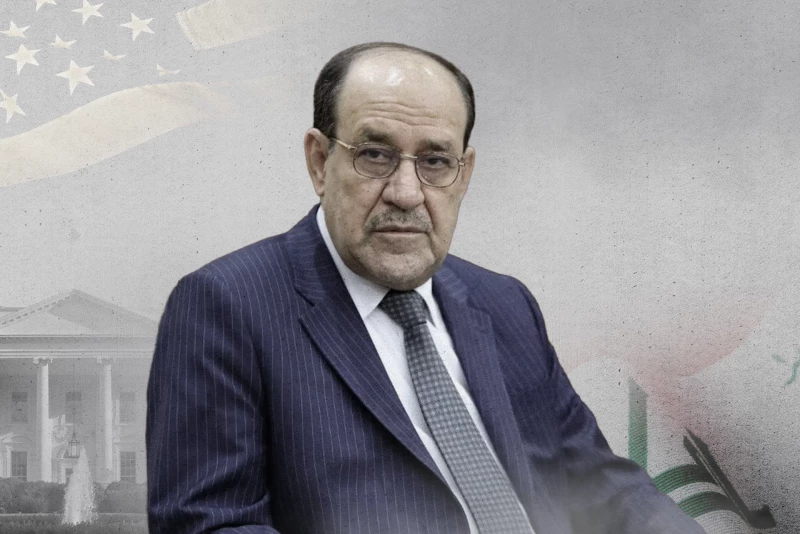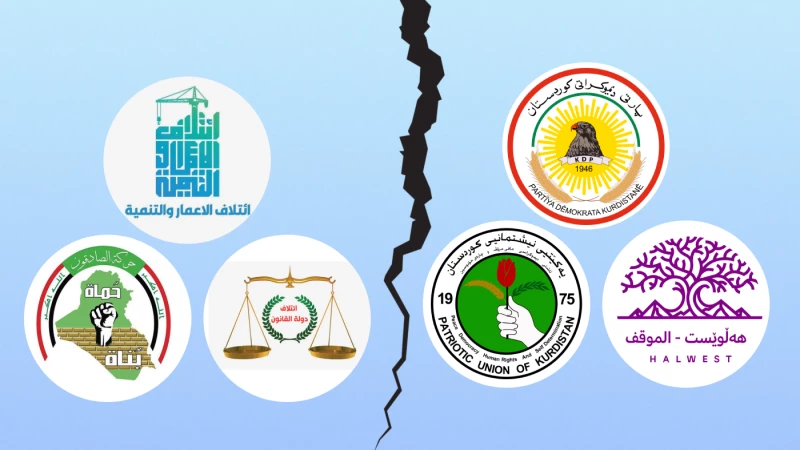Iraq is grappling with a fresh financial crisis caused by a severe cash flow shortage, resulting in delayed salary payments for government employees and the possibility of essential service projects coming to a standstill. Economists cite surging government spending and widespread money hoarding as key factors.
They suggest that the government may soon mandate electronic payments from citizens to mitigate the liquidity shortfall.
Mohammed Nouri, a member of the Parliamentary Finance Committee, told The New Region that the government has pulled all financial allocations from state institutions to address the liquidity crisis.
Nouri says that most Iraqi provinces currently lack active projects, with many halted due to the cash flow shortage and a significant rise in government spending.
As a result, there have been delays in paying employees' salaries in recent months, stemming from the considerable liquidity shortfall at both the Central Bank and the Iraqi Ministry of Finance.
The reasons for withholding information about Iraq's financial situation from the public and general opinion are unclear, Nouri notes, and even members of the Parliamentary Finance Committee are not fully briefed on the issue.
Nouri stresses the need for transparency so that collaborative solutions can be developed to address the crisis, warning that its economic repercussions could be severe.
Despite the Ministry of Finance's monthly announcements of scheduled salary payments, disbursements can be delayed by over a week. Some discussions suggest that these announcements are "misleading" the public, as the delays are due to insufficient cash liquidity caused by a reduced inflow of dollars from the US Federal Reserve.
The Ministry of Oil provides the Central Bank of Iraq with monthly revenue from crude oil exports in US dollars. The Central Bank then converts these dollars into the Iraqi dinar in the local market and transfers the funds to the Federal Ministry of Finance. These funds are used to pay the monthly salaries of state employees, security personnel, pensioners, and those in the social welfare network.
Central Bank Governor Ali Al-Alaq has repeatedly denied any issues with Iraqi dinar liquidity. He claims that "rumors of a liquidity problem with the Iraqi dinar are unfounded," and insists that the Central Bank continues to fulfill liquidity requests, including those from the Ministry of Finance.
Economist Nabil Jabbar Al-Tamimi told The New Region that the severe cash liquidity shortage in Iraq is real and not exaggerated.
Al-Tamimi explains that the shortage is due to the Central Bank of Iraq's limited ability to conduct transfers under American oversight. This has led to a cash liquidity crisis, causing delays in employee salary disbursements over the past few months.
He clarifies that "while this isn't an outright economic or financial crisis, there is a funding bottleneck causing these issues despite ample dollar reserves. To address this, the Iraqi government is shifting towards electronic payments to avoid the need for printing more Iraqi currency.
"The main cause of this shortfall is the substantial increase in government spending in the 2023 and 2024 budgets. The continued unplanned rise in spending will undoubtedly worsen the cash liquidity crisis. This will inevitably affect the payment of employee salaries and the implementation of service projects in Baghdad and other provinces. It's impossible to sustain these projects amid a severe cash shortage."
A report by Iraq Future, an economic studies and consulting institution, reveals that the value of local currency circulating outside the banking system in Iraq exceeded 90 trillion dinars (US$68.2 billion) last year. The report concluded that the average cash hoarding per Iraqi household is around 15 million dinars (US$11,000), a significant increase from 2019, indicating that many Iraqis prefer to keep large amounts of cash outside the banking system.
Economist Mustafa Akram Hantoush confirms that the lack of bank deposits, especially into state-owned institutions, and the significant increase in government spending are the main contributors in the substantial cash liquidity shortfall.
Hantoush says that salary payments have been delayed over the past three months, highlighting the Ministry of Finance's struggle to ensure sufficient cash liquidity, as well as the Central Bank of Iraq's difficulties in injecting dinars into the market. He warns that the situation requires swift government intervention to prevent the crisis from deepening.
He notes that the Iraqi government's push towards electronic payments is a strategic move to address the problem. By shifting financial transactions to an electronic format, the government aims to reduce its reliance on physical cash. Electronic payments are likely to become mandatory in many areas to alleviate the cash handling burden.



 Facebook
Facebook
 LinkedIn
LinkedIn
 Telegram
Telegram
 X
X


